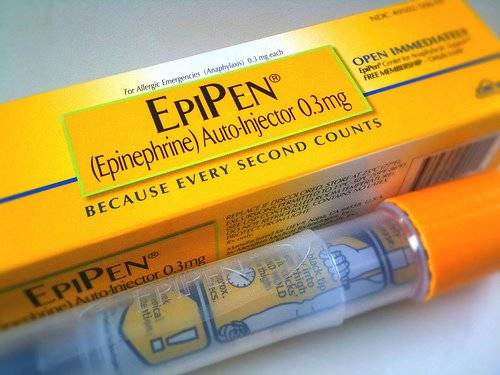



The U.S. Senate Special Committee on Aging released on Dec. 23 a 130-page report detailing how four pharmaceutical companies enriched themselves by acquiring drugs with patents that had expired decades ago and then drastically increasing the cost to consumers, just because they could.
The four companies — Retrophin, Rodelis Therapeutics, Turing Pharmaceuticals and Valeant Pharmaceuticals International — invested nothing for research or development. They had no real increase in the cost of production or distribution. However, all four drastically spiked the cost of their drugs to consumers — from 310 percent to an incredible 5,000 percent.
The study noted that the four companies were able to take advantage of the U.S. health care system to enrich themselves, often at taxpayers’ expense. While private insurers have restricted reimbursements on many drugs in recent years, the Center for Medicare and Medicaid Services provides reimbursement for any medication covered by Medicare Part D.
The study concluded that more pharmaceutical companies need to be investigated.
One in 10 seniors cannot afford drugs
In the richest country in the world, 1 in 10 seniors cannot afford prescription medicines. In 2015 the average cost for a year’s supply of a brand-name drug in the U.S. was around $5,800, with seniors on average taking 4.5 different prescriptions.
Half of all people on Medicare make $24,150 or less a year, while one in seven survive on income below Supplemental Poverty Measure thresholds. Basic Medicare does not cover prescription drugs — you have to purchase Medicare Part D. Without that coverage, seniors needing to buy 4.5 prescriptions would on average pay $26,100 — considerably more than their annual incomes.
Quantifying the scope of this crisis, the AARP Public Policy Institute reported on Dec. 14 that the “retail cost of brand-name drugs most commonly used by older Americans rose more than 130 times the rate of inflation between 2006 and 2015.” While the AARP study concentrated on brand-name drugs, there is also growing concern about huge price increases for many generics.
Generic drugs, which account for 80 percent of all prescriptions, used to be considered one of the few health care bargains. But an August 2015 AARP study found that around 27 percent of generic prescription drugs were also experiencing serious price increases.
Decreased competition fuels price spikes
The reports found no change in production costs to account for these sudden and in many cases drastic price spikes. But they did find a growing number of mergers and acquisitions in the drug industry that decreased competition.
For example, when the number of manufacturers of one heart medication fell from eight to three, the drug’s cost soared by 637 percent. A record $724 billion worth of pharmaceutical company mergers and acquisitions took place in 2015. (wallstreetdaily.com, June 3)
One particularly scandalous example was the August 2013 acquisition of Turing Pharmaceuticals by former hedge fund manager Martin Shkreli, which resulted in an drastic overnight spike in the price of a 62-year-old drug considered the standard of care for treating a life-threatening parasitic infection. Shkreli raised the cost of Daraprim from $13.50 per tablet to $750 — an increase of over 5,000 percent. He was arrested in December 2015 on allegations that he had plundered his own companies in a Ponzi-like scheme.
A recent scandal involved a drastic increase in the price of the EpiPen, a life-saving injection device containing medication for people with severe allergies. Mylan Pharmaceutical acquired it in 2007 and raised the price from less than $100 for a two-pen set to over $600 last May.
EpiPen commands over 90 percent of the market. There is no real competition. Allergy patients are advised to carry two EpiPens at all times. Depending on expiration dates, the injectable drug needs to be replaced annually.
Mylan CEO Heather Bresch, while defending the sharp increase in the Epi-Pen’s cost, saw her own annual salary grow from around $2.5 million to more than $18 million. Martin Shkreli offered to raise funds to defend Bresch.
More people die from curable diseases
The Centers for Disease Control and Prevention (CDC) reported in May that across the U.S. hepatitis C now claims more lives than HIV/AIDS, despite the existence of drugs that can cure the disease. The CDC found that by 2013 “hepatitis C-related mortality surpassed the total combined number of deaths from 60 other infectious diseases, including pneumococcal disease and tuberculosis.”
Globally, from 350,000 to 500,000 people die every year due to complications stemming from untreated hepatitis C. These deaths did not have to happen.
In 2013 the U.S. Food and Drug Administration approved the new, direct-acting antiviral drug Solvaldi with a 90 percent cure rate. In 2011 Gilead Sciences acquired this drug through a takeover of Solvaldi’s developer, Pharmasset. While initially charging $84,000 ($1,000 per pill) for a 12-week course of treatment, in 2013 Gilead introduced a slightly modified version called Harvoni, with a 95 percent cure rate, at the increased cost of $94,500 per treatment course. Gilead’s profits skyrocketed.
At the 2016 Glasgow HIV Congress, Dr. Andrew Hill reported a 1,000-fold mark-up in the price of drugs for HIV, HCV and cancer in high-income countries, including the U.S. Hill also cited the wide disparity between the production cost of new antiviral drugs for hepatitis C — only about $57 per treatment course — and their astronomical market price in the U.S. (The Body Pro, Oct. 24)
Next: Abundant gov’t investigations but no end to crisis.
In the 1950s, when Japan and much of Europe was in ruins, the U.S. accounted…
This “Call from the General Federation of Trade Unions in Gaza to Labor Unions in…
Desde que la administración de Donald Trump/Elon Musk tomó las riendas del poder a finales…
Philadelphia Palestine activists marched from Philadelphia City Hall to Day & Zimmermann on April 18…
Marching up Blue Hill Avenue through the Black and immigrant Dorchester neighborhood, Trans Day of…
This statement was recently issued by over 30 groups. On Friday, March 28, Dr. Helyeh…